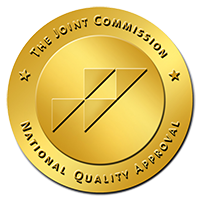Dotting I’s and crossing T’s…
That’s what Health Information Management is all about

Julie Sheldon, Box Butte General Hospital’s HIM Manager and Privacy Officer.
Box Butte General Hospital’s new manager of its Health Information Management (HIM) Department is a stickler for detail. She has to be.
Julie Sheldon became HIM Manager and Privacy Officer in May of 2016 upon the retirement of then manager Claudia Olafson. Ms. Sheldon has been with the HIM department for eight years, working first as an Electronic Medical Records (EMR) technologist and then as Clinic Documentation Informatics specialist. She is currently studying to get her Registered Health Information Technologist (RHIT) certification.
“Health Information Management is all about making sure a patient’s information, whether inpatient or outpatient, is managed correctly,” Ms. Sheldon reported. “We make sure all necessary reports are included; that appropriate signatures are on their charts; and that the charts are coded correctly before we send them on to Patient Finance Services for billing.” The department is also responsible for making sure any release of information meets the standards of the Health Insurance Portability and Accountability Act (HIPAA), and that such information is released only to authorized persons. The department reports deaths and births to the state agency responsible for such records, as well as monthly statistical information on the kind of care being given in that time period for both inpatients and outpatients. “We do a lot of monthly reporting,” Ms. Sheldon said.
“We also gather both electronic and paper records,” she continued. “We scan the paper records so that they are included in the patient’s EMR. Most of our paper records come from inpatient charts and observations from the Patient Care Unit; Emergency Department; Dialysis Unit … pretty much every department where patient encounters occur has some paper.”
The department also scans and uploads all surgical pictures taken by the hospital’s surgical specialists to patient EMRs.
Coders within the department have to go through charts, reading the diagnosis and then coding that diagnosis for proper billing. With the implementation of the International Classification of Diseases 10th revision (ICD 10) last year, the number of codes has exploded. “I think ICD 10 is great since it goes into more detail,” Ms. Sheldon said. “It went from four codes to seven codes for everything. For example in ICD 9, you would code for a broken leg. In ICD 10, you code for a broken leg, what kind of break, where the break was, which leg, etc.” She added that the role of coders is important, since accurate coding is essential to insuring the hospital provides the right service to the patient and that the patient and the patient’s insurance is billed properly. “We have chart auditors who make sure all the chargers are correct on the charts before they go to the coder,” she said. HIM is also in charge of making sure transcriptions are included in the correct chart.
“So essentially, we’re the record keeper for almost all the departments at the hospital who interact with patients,” Ms. Sheldon said.
The hospital is required to keep medical records of patients for 10-years from the date of a patient’s last visit. Some records have to be kept at least 30-years, such as birth records and delivery notes, for example. “You can’t imagine how many documents all of this entails,” Ms. Sheldon said.
In her role as the hospital’s Privacy Officer, Ms. Sheldon is on a team responsible for researching all HIPAA violations as well as implementing the HIPAA training program to make sure all employees understand the importance of the Act’s guidelines. “Violating those guidelines is a serious matter,” she said. “If violations occur, we are required to notify the affected patient and file reports with the proper Federal agencies. The consequences to the employee or employees involved can be severe. Our department is charged with making sure the right people get the right information and that people who shouldn’t have access don’t have that information to protect the patient from unauthorized disclosures, both financial and medical. Needless to say, we take the guidelines very seriously here at BBGH.”
“I love working here,” she concluded. “Being able to help people is the best part of my job. I like making sure they get the information they need and that their records are correct. Another great aspect is being able to work with a great team of individuals in HIM.”
Ms. Sheldon and her husband Donald (a retired BNSF engineer) live north of town “in the underground house,” as she describes it.
Box Butte General Hospital is an equal opportunity provider and employer.


